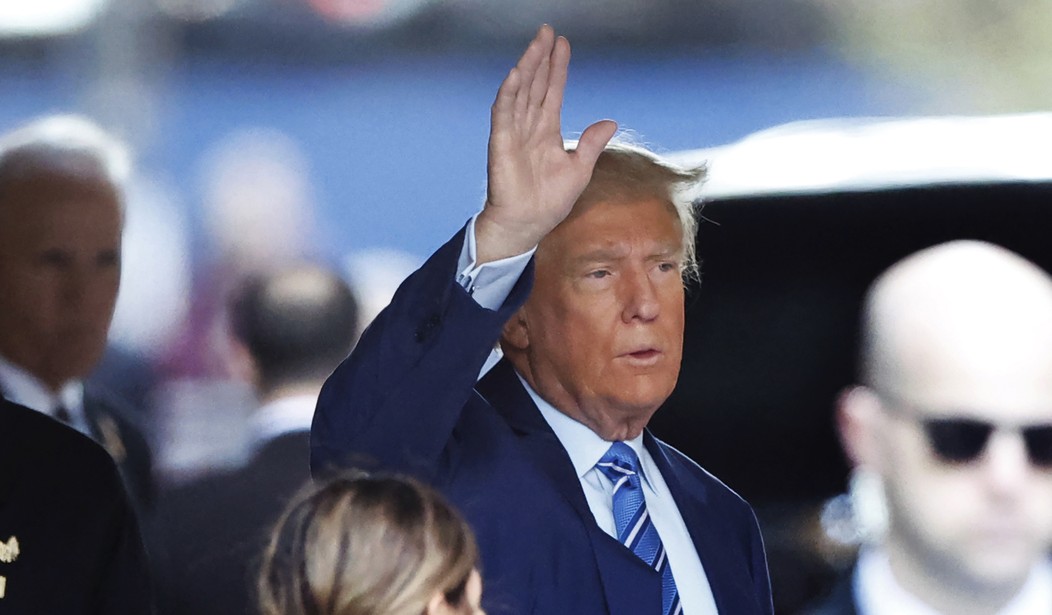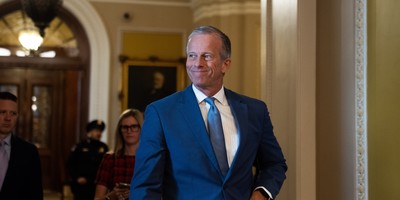Over the years, our government has expanded dramatically, all with the objective of improving our lives.
Yet, with all of this, confidence that Americans express in our country and its major institutions has plummeted.
Of 18 of the nation's major institutions, per a recent Gallup survey, there are only three in which 50% or more now express a "great deal or quite a lot" of confidence.
In 1979, an average of the 18 institutions -- ranging from the military, the presidency and the Supreme Court to higher education, Congress and big business -- stood at 50%.
By 2025, this was down to 28%.
Let's consider the case of big business.
In 2025, 15% of Americans said they have a "great deal/quite a lot" of confidence in big business.
The Business Roundtable is an advocacy organization in Washington whose membership consists of the CEOs of more than 200 of America's largest corporations.
In 2019, they issued a new statement regarding the "purpose of the corporation" which, per the release, modernized the statement that had been in place since 1997. These new principles supposedly would advance a new, more "modern standard for corporate responsibility" to accommodate people "asking fundamental questions about how well capitalism is serving society" and noting that "business can do more to help the average American."
In 1970, economist and later Nobel laureate Milton Friedman wrote a famous article in The New York Times, with the headline, "The Social Responsibility of Business Is to Increase Its Profits."
Friedman's point was that the responsibility of the management of the corporation is economic, not political. The corporation controls assets, owned by its shareholders, and those shareholders choose to own shares in the firm, which they can sell any day they want, because they believe this firm will maximize the economic potential of those assets and provide competitive returns on investment.
Recommended
Once the management turns its attention to other objectives, they are failing to do their job and abusing their fiduciary responsibility to those paying them. Moving from objectives other than maximizing the economic potential of the resources for which they are responsible turns the corporation into a political entity rather than an economic entity.
And this is exactly what the Business Roundtable did with its change, in 2019, of their official statement of the "purpose of the corporation."
According to the new statement, shareholders became just one of numerous "stakeholders" to which the management was responsible to serve.
Suddenly customers, suppliers, employees, communities in which the companies do business, were no longer elements of the realities in which the firm conducts its business. Suddenly, they were transformed into "stakeholders" of the firm.
Now, among other things, per the Roundtable, part of their business obligations included "foster diversity and inclusion, dignity and respect."
Along with our universities, our corporations lost sight of what they were about and transformed and morphed into tools of a political agenda.
What's been the result?
Practically speaking, as noted above, the public has just lost confidence in these institutions that are simply not doing their job.
Regarding business, back in 2002, Gallup reported 20% saying they had "a great deal/a lot" of confidence in big business. Now, six years after the Business Roundtable corporate responsibility revision, it's five points lower than it was 23 years ago.
A recent Wall Street Journal column under the headline "The Boss Has Had It with All the Office Activists," notes businesses are now shaking off the political culture that they allow to proliferate in their firms.
DEI directives are being purged. Firms are clamping down on employees using time at work to discuss or engage in political activities.
Work is work. How innovative!
A broad de-politicization of our nation's institutions is taking place.
Maybe partly driven by President Donald Trump. Maybe driven by the realities of an increasingly competitive global marketplace.
This is a good and healthy sign.

























Join the conversation as a VIP Member